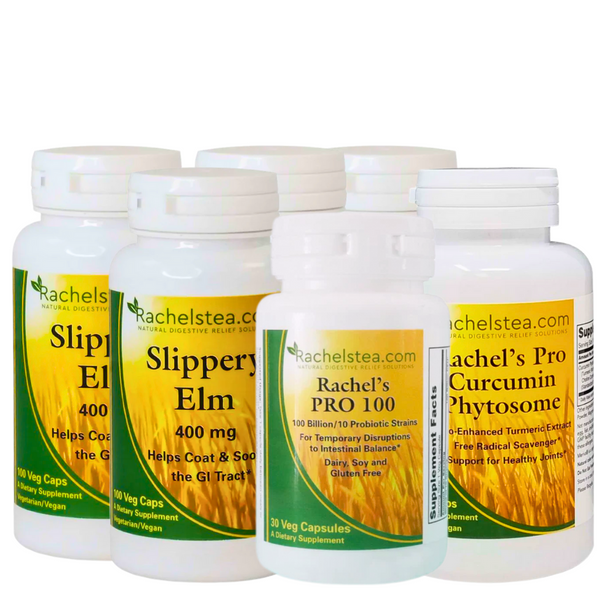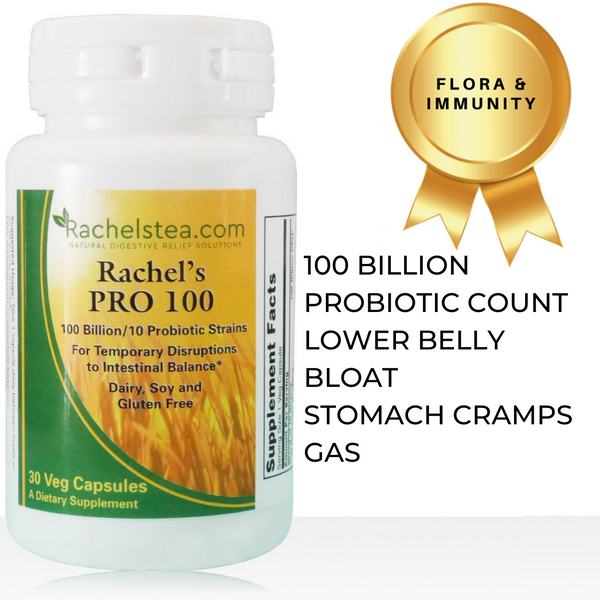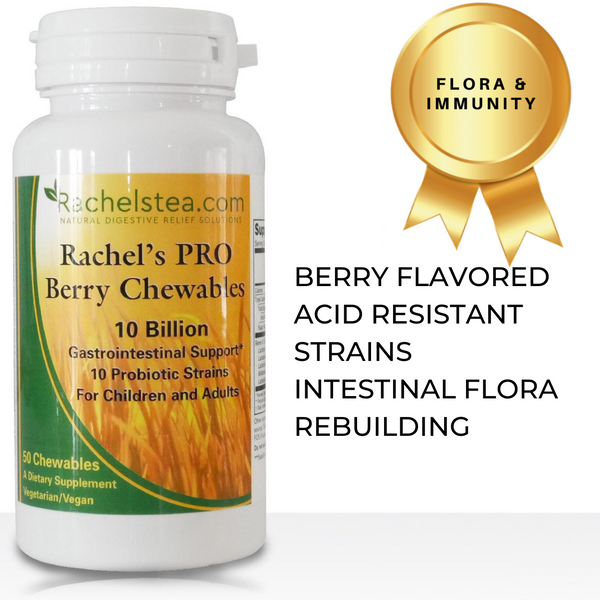

4 Slippery Elm, 1 Rachel's Pro Turmeric Blend & 1 Rachel's PRO 100
Thinking of using a probiotic? Here is how to decide and not waste your money?
Lately, people from the Facebook group and via emails have been asking if they need a probiotic and for those who do… how do they choose. During the next two minutes I am going to give you 25 years of expertise on these two questions.
First, who should be taking probiotics (Mike Hohlweg’s opinion):
- Anyone who has had antibiotics once in the past 3 years or more than two rounds of antibiotics during their life (read why below)
- Anyone with a digestive issue, including minor issues like heartburn, bloating or acid reflux
The reason for these two categories is simple, a single round of antibiotics can destroy as much as a third of your “good” gut bacteria, even though the reason for taking them is of course to wipe out “bad” bacterial infections. Antibiotics are non-discriminating.
If you have a digestive issue, you are almost certainly over-acidic (low pH) and low pH is a harsh environment where many of the beneficial bacteria cannot survive or properly colonize. Keep in mind that beneficial bacteria are considered to be 75% of your immune system. Keeping them healthy and colonizing not only digests your food, they fight disease and inflammation as well.
Secondly… choosing a probiotic that does not waste your money:
Many of us, myself included have bought $40 to $75 dollar bottles of probiotics gotten zero benefit. I personally did not understand this but Rachel and I have researched, experimented, and finally helped formulate probiotics that solve this mystery of wasting money on probiotics. We concluded that First: as much as 95% of typical probiotics die in the high acid content of the stomach and upper intestine (a condition every digestive issue sufferer is plagued by).
Second, the percentage of probiotic strains that make it through to the gut are often unable to colonize in the relatively low pH of the digestive issue sufferers gut. With these two facts you can understand how many of us have been spending on high quality probiotics and not benefiting.
Here is the simple solution to both issues:
If you are following the PFF catalyst food avoidance program, the low pH is self correcting and a high quality, broad spectrum, high count probiotic such as Rachel’s Pro 100’s will be perfect. This product contains 100 billion count of shelf stable, broad-spectrum bacteria and is so effective that some of our clients say they actually feel the difference in a few days.
For those of you who are not closely following the PFF diet recommendations... Rachel’s Pro Berry Chewables contains only special strains of acid resistant probiotic bacteria that survive the acid of the stomach and upper intestine and are able to colonize in a gut with a lower pH than other brands can tolerate.
I could go on but to keep this short and sweet, either follow the program and consider Rachel’s Pro 100’s, or try the only acid resistant formula we know of: Rachel’s Pro Berry Chewables.
We never want to waste your time, and whether you get your probiotics from us or elsewhere, check for these things to make sure you get real benefit from your probiotic choice and don’t waste your money.
Disclaimer: These statements have not been evaluated by the FDA and are not intended to diagnose, cure, or treat any disease or health issue. These articles are not a substitute for competent medical advice. The author is not medically trained, nor are these articles reviewed by medical or trained personnel.
Featured Articles

Supplements, diet, or a combination of both for digestive relief?
My weight is already too low, what now?

Why would I do a liquid diet?
Why would I do a liquid diet?

Catalyst Foods Explained
Catalyst Foods Explained
Join our online Community
Join thousands of people that used to be searching for answers about digestion just like you were. Our private group is a secure place to find the answers you're looking for from real people and coaches.
Join Us



